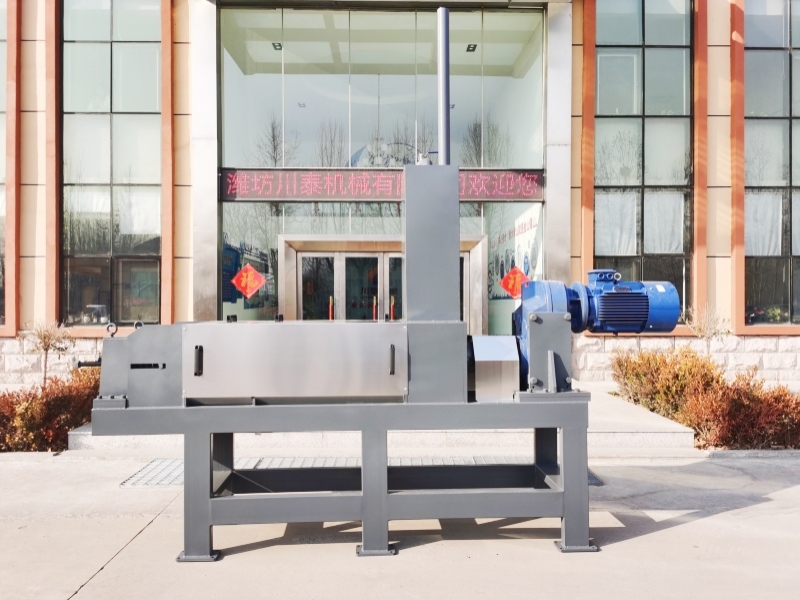
Introduction
In recent years, agricultural waste management has become a pressing concern worldwide. Cow dung, a ubiquitous byproduct of livestock farming, can be a significant environmental issue if not adequately managed. However, innovative technologies, such as the Cow Dung Press Dehydration Machine, have emerged to address this challenge effectively. This article explores the functionality, benefits, and environmental impact of these machines, showcasing their importance in sustainable waste management.
Functionality of Cow Dung Press Dehydration Machines
Cow dung press dehydration machines are designed to convert fresh cow dung into compact, dry matter through the process of dehydration. The machine consists of a large cylindrical drum, a filtering system, and an advanced mechanical press. The process starts by feeding fresh cow dung into the drum, where it is mechanically crushed and mixed, breaking down the fibrous structure and increasing the surface area for dehydration.
Next, the drum rotates, and the mixture is gradually pressed against a filtering mesh. As the drum continues to rotate, excess moisture is extracted from the cow dung, leaving behind a compressed, drier solid residue. The filtered liquid fraction can also be collected for further processing, as it contains valuable nutrients that can be used as organic fertilizers.
Benefits of Cow Dung Press Dehydration Machines
2.1. Waste Reduction and Resource Utilization
By dehydrating cow dung, the machines significantly reduce its volume, facilitating easier transportation and storage. This also translates into reduced disposal costs and less burden on landfills. Moreover, the extracted liquid portion can be utilized as a nutrient-rich organic fertilizer, closing the loop and promoting a sustainable agricultural cycle.
2.2. Pathogen and Odor Control
Fresh cow dung contains harmful pathogens and emits unpleasant odors, which can be hazardous to both human health and the environment. The dehydration process in these machines effectively reduces pathogen levels and curbs foul odors, making the waste more manageable and environmentally friendly.
2.3. Biomass Fuel Production
The dried cow dung can be further processed into biomass fuel, such as pellets or briquettes, for use in cooking, heating, or generating electricity. This not only provides a renewable energy source but also reduces reliance on traditional fossil fuels, contributing to greenhouse gas reduction and combating climate change.
Environmental Impact
Cow dung press dehydration machines play a pivotal role in mitigating the environmental impacts associated with improper waste management. By converting cow dung into useful resources like organic fertilizer and biomass fuel, these machines minimize pollution and resource wastage. Additionally, the reduced emissions of methane, a potent greenhouse gas released during the decomposition of untreated cow dung, further aid in environmental conservation efforts.
Conclusion
The introduction of cow dung press dehydration machines represents a significant step forward in sustainable waste management. These innovative technologies offer numerous benefits, from waste reduction and resource utilization to pathogen control and biomass fuel production. By embracing such solutions, agricultural industries can effectively tackle environmental challenges associated with cow dung while contributing to a more sustainable and eco-friendly future. Through continued research and implementation, these machines have the potential to revolutionize waste management practices worldwide, making a positive impact on both local communities and the global environment.




If your company wants to establish a business relationship with us, please briefly describe the cooperation intention and send an email to:chuantaiscrewpress@gmail.com























































































![[list:title]](/static/upload/image/20240528/1716877114510915.jpg)